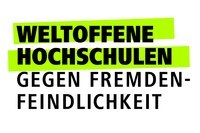Theoretical works are designed as literature reviews, where not only a thematically relevant corpus of educational literature is explored but also extensive theoretical frameworks from the fields of philosophy, sociology, political science, and other social sciences, as well as education science, are utilized. These theoretical frameworks must be diligently read in their original form and cited. They constitute the overarching structure for the considerations made within the work.

Bachelor's and Master's theses
Information for the Research Unit pedagogical professionalism in the context of heterogeneity and inclusion in (school) education
In principle, both theoretical and empirical work is possible; however, in most cases the decision is not a matter of individual preference, but rather depends on the requirements of the topic. If you choose a primary supervisor from the field of (school) heterogeneity and inclusion, please independently suggest a second supervisor to this person, whose willingness to review your work you should of course also clarify.If the second reviewer is also from the field of heterogeneity and inclusion, we would like to point out that consultations are primarily conducted by the primary supervisor; the second reviewer will only be involved upon the suggestion of the primary supervisor.
IMPORTANT:
If you intend to write a thesis in the field of heterogeneity and inclusion, please prepare an outline BEFORE contacting your prospective primary and secondary supervisors. This outline should include the following
- The introduction to the thesis: What is your focus?
- The derivation of the research question (preferably literature-based)
- The research question itself
- A preliminary list of the literature you have found
- Initial thoughts on whether the thesis should be empirical or theoretical (and how you intend to approach it). For empirical work, you will need both data collection and analysis methods. For theoretical work, it's not enough to find literature; you'll also need a sociological theoretical framework (see below).
Theoretical works
Empirical works
Tips and tricks for writing a scientific paper
Tips and tricks for writing a scientific paper can be found on this instructional video from the OER Lab at the University of Koblenz.

Themepool
Field of (school) heterogeneity and inclusion
In principle, a variety of topics can be selected, all of which, however, fall within the field of inclusive pedagogy. Assuming this, the following general directions or theoretical approaches are possible:
Dis/Ability Studies (in Education) and Disability History
Ableism and Ableism Research
Intersectionality and Intersectionality Research
Heterogeneity, Diversity, and Diversity Research
Participatory, Emancipatory, and Inclusive Research
Hegemony Theory and Philosophy of Practice
Inclusive Education from the Perspective of CriticalTheory, and/or Poststructuralist Discourses
Biographical Research and Life History Research
Subjectivation Research
Postcolonial Studies
Engagement with Civil Rights Movements (historical as well as contemporary)
Exploration of Questions related to Power and Violence (e.g., in specific institutions or in specific societal and/or educational or social policy fields, etc.)
Inclusion and Exclusion (e.g., in specific institutions or in specific societal and/or educational or social policy fields, etc.)
Inclusive Didactics
You may find more specific topic suggestions at the end of this page.
Teaching degree
Bachelor's and master's theses in educational sciences.
Bachelor Thesis
Students specialising in the teaching of secondary schools (Realschule plus), grammar schools (Gymnasium) and vocational schools (Berufsbildende Schule) can write their Bachelor's thesis in Education. The duration of the dissertation is 11 weeks and the length of the dissertation is 40-60 pages. Please follow the guidelines for the bachelor thesis provided by the University Examination Office.
If you would like to be supervised by someone from the Research Unit of Heterogeneity and Inclusion, please provide a rough outline of your ideas when you first contact us (see above).
We assume that by the end of your studies you will be familiar with the rules of academic work. However, we do offer sessions to review these basics. We strongly recommend that all students who are supervised by a member of our Research Unit attend these sessions. Dates will be emailed to you by your supervisor if you already have a supervision agreement. Further information can be found in the OLAT course for dissertations, which you can register for after submitting a supervision agreement. Please note that questions regarding the techniques of academic work should NOT be discussed with your supervisors during office hours or via email.
Master Thesis
Students with a focus on secondary school teaching (Realschule plus) can write their Master's thesis in Educational Science. The Master's thesis must be in a different subject than the Bachelor's thesis, so it is not possible to write both a Bachelor's and a Master's thesis in Education. The duration of the thesis is 20 weeks and the length of the thesis is 60-80 pages. Please follow the guidelines for the Master's thesis provided by the University Examination Office.
If you would like to be supervised by someone from the Research Unit of Heterogeneity and Inclusion, please provide a rough outline of your ideas when you first contact us (see above).
Candidates for the Master's thesis who intend to apply for the preparatory service are advised to take into account the application deadlines of the ADD (Supervision and Service Agency for Schools). In addition to the processing time, please allow for the correction periods of the first and second examiners.
As with the bachelor thesis, we assume that you are familiar with the rules of academic work at the end of your studies. However, we do offer sessions to review these basics. We strongly recommend that all students who are supervised by a member of our Research Unit attend these sessions. You will receive the dates via email from your supervisor if you already have a supervision agreement. Further information can be found in the OLAT course for dissertations, which you can register for after submitting a supervision agreement. Please note that questions regarding the techniques of academic work should NOT be discussed with your supervisors during office hours or by email.
Bachelor Pedagogy
Bachelor's or Master's Thesis in Bachelor Pedagogy
Students who have chosen the specialisation 'Inclusive Education' in their Bachelor's programme can write their Bachelor's or Master's thesis in the field of (school) heterogeneity and inclusion. Both authors of Bachelor's and Master's theses must strictly follow the information provided by the University Examination Office for Bachelor's and Master's theses.
In the Bachelor of Education programme, a colloquium for final theses is also offered by a member of staff from the Research Unit of (School) Heterogeneity and Inclusion. Attending this colloquium is worthwhile for the development of the dissertation, as it allows for close supervision. However, due to the high number of applications, attendance does not guarantee supervision. If you get a place in the colloquium, you do not need to prepare an outline in advance - although it can still be helpful as a basis for discussion :)
If you would like to be supervised by someone from the Research Unit Heterogeneity and Inclusion and have not secured a place in the Research Unit colloquium, please submit a rough outline of your ideas when you first contact us (see above).
The processing time for a Bachelor's thesis is 12 weeks.
No specific requirements are made regarding the length.
The processing time for a Master's thesis is 24 weeks.
No specific requirements are made regarding the length."
Topics for Bachelor's/Master's Theses
I offer bachelor's and master's theses in the field of qualitative social research, with a focus on sociological theory and empirical analysis. The topics I cover include:
Dis/Ability Studies (in Education) and the History of Disability"
[Dis/Ability Studies (in Education) und Disability History]Intersectionality and intersectionality studies
[Intersektionalität und Intersektionalitätsforschung]Heterogeneity, diversity and diversity studies
[Heterogenität, Vielfalt und Diversität(-sforschung)]Participatory, emancipatory and inclusive research
[Partizipative, Emanzipatorische und Inklusive Forschung]Research on issues of power and violence (e.g. in specific institutions or social and/or educational or social policy fields, etc.)
[Auseinandersetzung mit Fragen zu Macht und Gewalt (zB in spezifischen Institutionen oder auch in spezifischen gesellschaftlichen und/oder bildungs- oder sozialpolitischen Feldern etc.)]Inclusion and exclusion (e.g. in specific institutions or social and/or educational or social policy fields, etc.)
[Inklusion und Exklusion (zB in spezifischen Institutionen oder auch in spezifischen gesellschaftlichen und/oder bildungs- oder sozialpolitischen Feldern etc.)]
Please ensure that you strictly adhere to the 'Guidelines for Academic Writing' when formatting your theses. Additionally, in line with the department's thematic focus, please use gender-inclusive and/or neutral language consistently throughout your work. Simply indicating the generic masculine form is not sufficient for this purpose. The writing workshop at the University of Koblenz, which was set up as part of the IKARUS project, offers helpful support for academic writing.
I offer bachelor's and master's theses in the field of qualitative social research, with a focus on sociological theory and empirical analysis. The topics I cover include:
Disability Studies [Dis/Ability Studies]
Dis/Ability Studies in Education [Dis/Ability Studies in Education]
Heterogeneity and Intersectionality [Heterogenität und Intersektionalität]
Gender Studies [Gender Studies]
Inclusive Research [Inklusive Forschung]
Please ensure that you strictly adhere to the 'Guidelines for Academic Writing' when formatting your theses. Additionally, in line with the department's thematic focus, please use gender-inclusive and/or neutral language consistently throughout your work. Simply indicating the generic masculine form is not sufficient for this purpose.The writing workshop at the University of Koblenz, which was set up as part of the IKARUS project, offers helpful support for academic writing.
"I offer theoretical and/or empirical bachelor's and master's theses in the field of educational science theory development and qualitative social research on the following topics:"
Inclusive pedagogy and inclusive education
[Inklusive Pädagogik und Inklusive Bildung]Inclusion and Exclusion (e.g. in specific institutions or social and/or educational or social policy areas, etc.)
[Inklusion und Exklusion (zB in spezifischen Institutionen oder auch in spezifischen gesellschaftlichen und/oder bildungs- oder sozialpolitischen Feldern etc.)]Dis/Ability Studies (in education) and History of Disability
[Dis/Ability Studies (in Education) und Disability History]Participatory, emancipatory and inclusive research
[Partizipative, Emanzipatorische und Inklusive Forschung]Heterogeneity, diversity and diversity research
[Heterogenität, Vielfalt und Diversität(-sforschung)]
"I don't provide predefined research questions. Please develop an initial conceptual idea for your work and then schedule an appointment. Please strictly adhere to the 'Guidelines for Academic Writing' for the formatting of your theses and, in line with the thematic focus of the department, consistently use gender-inclusive and/or neutral language. Merely indicating the generic masculine form is not sufficient for this purpose."
Andreas Sturm
I prefer to offer bachelor theses, but also master theses with a social-theoretical and/or empirical focus in the field of qualitative social research on the following topics:
- Dis/Ability Studies (in Education)
[Dis/Ability Studies (in Education)] - Heterogenität und Intersektionalität
[Heterogeneity and intersectionality] - Inklusive Pädagogik und Inklusive Bildung
[Inclusive pedagogy and inclusive education] - Inklusion und Exklusion (in Kontexten spezifischer Institutionen sowie gesellschaftlicher bzw. bildungs- oder sozialpolitischer Felder)
[Inclusion and exclusion (in the context of specific institutions and social, educational or socio-political fields)] - Auseinandersetzungen zum Verhältnis sozialer Bewegungen und pädagogischer Professionalität bzw. pädagogischer Institutionen
[Debates on the relationship between social movements and pedagogical professionalism or pedagogical institutions]
I do not offer ready-made questions. Please develop an initial idea for the content of your thesis and then arrange a consultation. When writing your thesis, please make sure to follow the 'Guidelines for Academic Writing' and use gender-reflective and/or gender-neutral language throughout - in accordance with the focus of the subject area. A reference to the generic masculine is not sufficient. The writing workshop at the University of Koblenz, which was set up as part of the IKARUS project, offers helpful support for academic writing.




